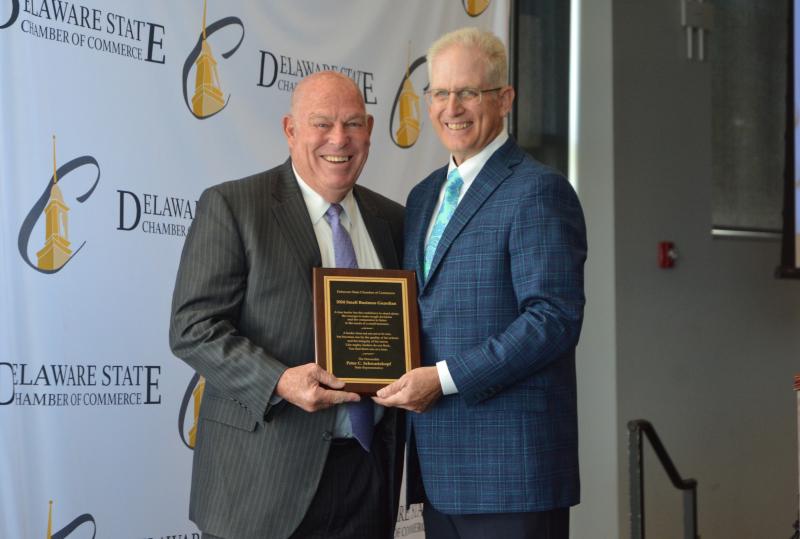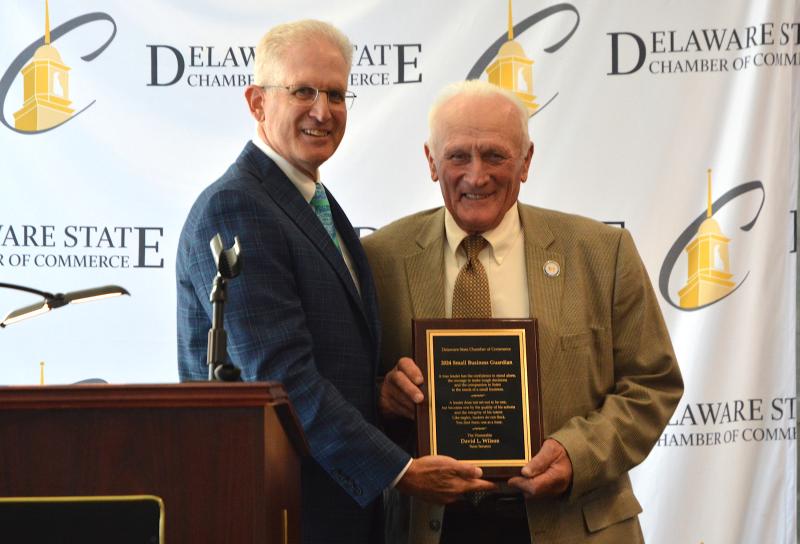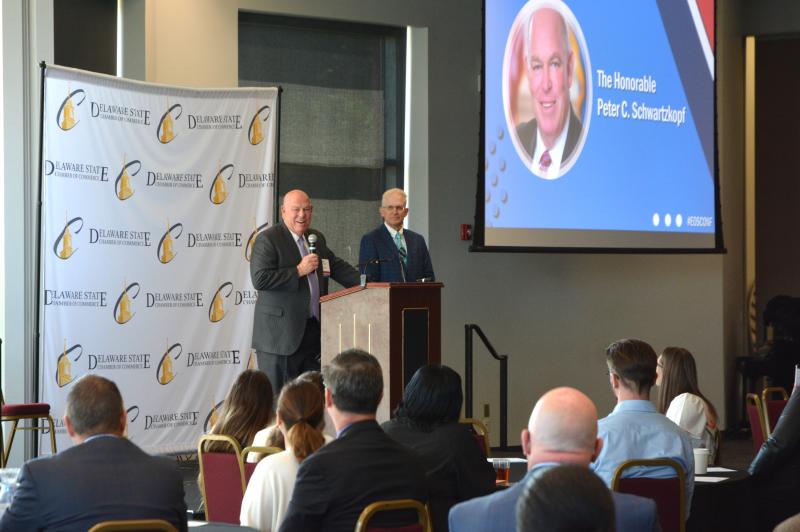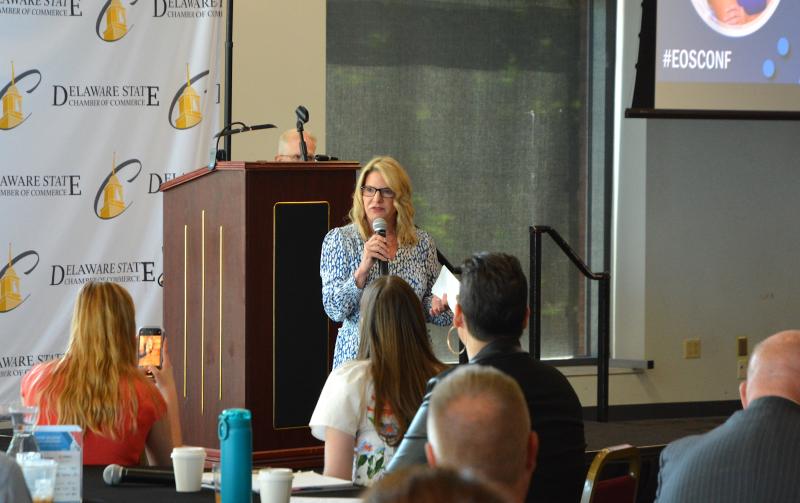Schwartzkopf, Wilson named Small Business Guardians

With the end of the General Assembly’s legislative session fast approaching, the Delaware State Chamber of Commerce hosted its annual end-of-session policy conference at Delaware State University May 30.
The conference began with presenting Rep. Peter Schwartzkopf, D-Rehoboth Beach, and Sen. Dave Wilson, R-Bridgeville, with Small Business Guardian Awards. While appreciative, neither man had much to say following the presentation.
Schwartzkopf, who is retiring after 22 years in the General Assembly, said he remembers when the business community was concerned that he would be bad for small business. The district he represents is nothing but small businesses, he said.
Wilson said the award is nice, but he thanked the chamber for all its hard work over the years supporting small businesses.
Following the awards presentation, the conference attendees spent time going over pieces of legislation that could affect the business community, specifically House Bills 248, 249 and 422.
HB 248 establishes a pre-permit community outreach process for any qualified project manager that wishes to apply for a permit within three months, in an underserved community; HB 249 is related to environmental permitting fees; and HB 422 requires that certain facilities, new or expanding and located in an overburdened community, provide an environmental justice impact report.
Kim Hoffman, a partner for Morris James LLP, said these pieces of legislation would make the permitting process too burdensome for businesses. It’s a competitive marketplace, and industry is looking for states that have clear and defined processes, she said.
Pointing to the large Amazon distribution center in New Castle County, Hoffman said she didn’t think that building would have been built if these bills had come to pass. These bills just create too much uncertainty, she said.
Speaker of the House Rep. Valerie Longhurst, D-Bear, said she’s received a lot of phone calls about the legislation. She said she thinks the bills come from a good place, but ultimately she doesn’t see any of them passing this session because each still needs work and there are only a few weeks left in the session.
There was brief discussion about House Bill 350, which establishes the Diamond State Cost Review Board that will review, and then accept or reject, the annual budgets of Delaware’s hospitals. This was a hotly debated piece of legislation, but by the time the chamber conference was held, it had already been passed through the General Assembly.
Delaware Healthcare Association CEO and President Brian Frazee said at this point, the questions are who will be on the board and who will make those decisions – Gov. John Carney or the next governor.
Longhurst said she doesn’t think board appointments will happen this year.
Senate President Pro Tempore David Sokola, D-Newark, said the board will most likely be made up of retired hospital executives.
After lunch, consultants Kim Gomes, a partner for ByrdGomes, and Verity Watson, a partner for Ruggerio, Wilson & Watson, spoke about the upcoming election cycle.
Gomes said Carney's decision to run for Wilmington mayor is the most interesting decision so far. He’s determined to hold all the elected positions in the state before he retires, she said.
Recognizing the Democrat stronghold on statewide seats, Gomes said Republicans have come forward with two strong candidates for governor and lieutenant governor in House Minority Leader Rep. Mike Ramone, R-Newark, and former Georgetown-area representative Ruth Briggs King.
In 2008, there were a number of Republicans who switched to Democrats to vote for former Gov. Jack Markell, and they never switched back, said Gomes. Ramone is the most viable Republican candidate since then, she said, so it will be interesting to see what those Republicans do.
No matter what happens, said Watson, this election will have an impact. Depending on who is governor, there could be a large overhaul at agencies across the state, she said.
The consultants were asked their opinion on the still-new Working Families Party and the candidates they support.
Watson said they’ll make the primaries more polarizing because they’re well-funded and have been winning races.
That said, noted Gomes, when their winning candidates get to Dover, they get away from some of the party’s platform because those elected officials realize they have to work with others to get stuff done.
Ramone was in attendance. He said the Working Families Party has done a better job at taking out incumbent Democrats than the Republicans have ever done.


Chris Flood has been working for the Cape Gazette since early 2014. He currently covers Rehoboth Beach and Henlopen Acres, but has also covered Dewey Beach and the state government. He covers environmental stories, business stories and random stories on subjects he finds interesting, and he also writes a column called Choppin’ Wood that runs every other week. He’s a graduate of the University of Maine and the Landing School of Boat Building & Design.

























































